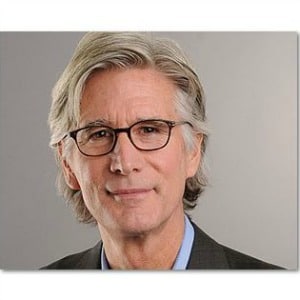
(By Bob McCurdy) I read an article recently written by Faris Yakob, a smart guy who writes some really thoughtful advertising-centric pieces.
The article focused on human decision-making and how many of our decisions are fraught with unrecognized biases which often lead to “suboptimal outcomes.” The takeaway was that media folks are also prone to biases, with these cognitive shortcuts often resulting in prejudgments that lead to less-than-optimal decisions.
Yakob highlighted the magnitude of our collective bias “blind spot” by referencing a study that found that 85% of us believed we were less biased than the average individual. Eighty-five percent of the respondents were biased toward being unbiased. Funny.
A couple of biases he touched upon were:
Complexity bias: A lot of people in the ad, sales, consulting, research, and marketing businesses make a lot of money and get a lot of promotions by making things seem complicated — the reason is due to a bias toward complexity. The belief is that complexity and complex solutions are better than simpler ones. A few examples of complexity bias that come to mind are:
— Assuming an individual to whom we’re speaking knows what they’re talking about because they use a lot of acronyms or obscure terminology. We’ve all fallen prey here at one time or another. To inoculate ourselves against this bias, focus on exactly what’s being said rather than how it is being said.
— Digital media are typically perceived to be “complex” due to simply being digital, whereas anything not digital, is not. There’s the widespread belief that any media channel that provides data or metrics should automatically be the preferred media channel, without first determining if the data provided is relevant, real, and accurate. The following headline from the Wall Street Journal awhile back highlights this point. There are literally dozens of others: “Facebook Overestimated Key Video Metric For Two Years.”
Occam’s bias: Is the opposite of complexity bias in that it states that there’s a bias towards overly simplistic solutions when faced with complex situations/challenges. It’s entirely possible for someone to toggle back and forth between complexity bias and Occam’s bias, depending upon circumstances, timing, etc.
Think back to “last click” attribution several years ago when the last click was given total credit for a sale or conversion. This was clearly too simplistic and misleading due to the increasing complexity of the ever-evolving path-to-purchase.
Econometric or media-mix modeling also had its own version of “last click” attribution until modelers refined their algorithms such that “indirect” impact was also able to be accounted for within the models.
I’ll now add a bias of my own, and that is “projection bias.” It occurs when an individual in charge of media selection, subconsciously or consciously, projects his or her own attributes, thoughts, attitudes, and media usage, onto others. This “projecting” becomes a problem in that while the individual might think they’re like everyone else, they usually have little to no idea what everyone else is truly like.
One of the reasons ad campaigns sub-optimize is not because common sense is ignored, but rather because the media decision-maker relies on their own common sense to reason about the media behavior of people who are different from them.
We are the antidote to this bias as we need to be visible with value and educating with vigor at key decision-making levels.
Interestingly, a bias can also be a positive and can be put to good use by a salesperson who carefully listens, observes, and uncovers their customer’s inherent biases, and then molds, cobbles, and crafts their “story” to reflect them. Leveraging a bias can often lead to a more productive meeting, help sell an idea, or close a sale.
The takeaway for all of us in this business — seller, buyer, planner, or client — is to continually re-evaluate what it is we think we already know, as that “knowledge” is often built upon a foundation of subtle biases that could be clouding reality and standing in the way of better media decisions and business performance.
Bob McCurdy is The Vice President of Sales for The Beasley Media Group and can be reached at [email protected]





